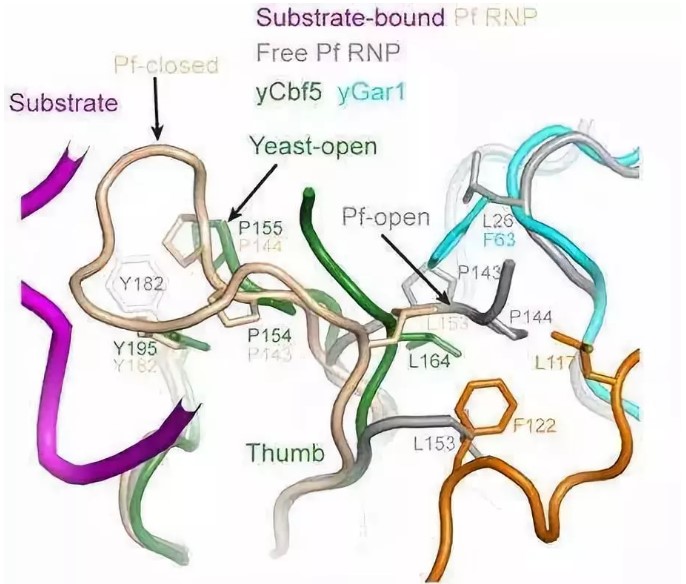Peptides have many benefits for the human body
Abstract:
With the increasing popularity of small molecule peptides, more and more people began to accept and eat small molecule peptides. In fact, many people have very little knowledge of peptides. So, what is the effect of taking peptides on nutrient absorption? Below with everyone to understand it!
Peptides - Essential Nutrients of Cells
Foodborne peptide is a new type of proteolytic product made from edible protein after enzymatic hydrolysis, separation and purification.
Foodborne peptides are commonly derived, and can be divided into small animal derived protein peptides and green plant derived protein peptides according to the different sources of protein raw materials.
Foodborne peptides vary in relative molecular weight and are divided into foodborne oligopeptides (molecular weight less than 1000Da) and foodborne polypeptides (molecular weight more than 1000Da).
In the past two decades, researchers around the world have done a lot of work in the product development of foodborne peptides, Omizzur biotech has a professional team of foodborne peptide researchers,and have isolated and assessed a variety of bioactive peptides from different food protein enzymolytic substances, such as antioxidant peptides, antihypertensive peptides, antithrombotic peptides, lipid-lowering peptides, opioid peptides, immunomodulatory peptides, antimicrobial peptides, etc
Foodborne peptides have a high safety factor, a universal physiological regulation effect, and a promising development factor, which has become a hot spot in the nutrition and health industry in the world.
Many studies have shown that foodborne peptides have a variety of nutritional health effects. Some active peptides are naturally active in the amino acid sequence of proteins, but after enzymatic hydrolysis in the body or outside the body (such as digestion in the digestive tract and food processing), the peptides are released, so that they may have a variety of physiological activities.
In addition, although the composition of the active peptide in the biological body is very small, its physiological activity is very obvious.
(1) Peptides Promote Amino Acid Absorption And Protein Synthesis
Among foodborne peptides, the oligopeptide (generally composed of 2 to 6 amino acids) shipping system has the characteristics of faster speed, low energy consumption, not easy to saturated state, and faster absorption than relatively dispersed amino acids.
Because oligopeptide and dispersed amino acids have unrelated absorption systems, the two interfere with each other, which helps to alleviate the absorption inhibition caused by the competition between dispersed amino acids and mutual absorption domains, and then promote the absorption of amino acids in peptide form, and the efficiency of protein synthesis is also increased.
For example, when lysine and arginine are stored in dispersed form, they compete with each other for the absorption domain, while when lysine is stored in peptide form, arginine is not harmful to its absorption.
In addition, oligopeptides in the circulatory system can also be directly involved in the synthesis of institutional proteins. Studies have shown that when the nitrogen source is in the form of peptides, the total protein accumulation is higher than the relative amino acid diet or detailed protein diet.
(2) Peptides Promote the Absorption of Mineral Elements
Many studies have reported that foodborne peptides can promote the absorption and use of mineral elements. Foodborne peptides can enhance water solubility by chelating with chemical elements, thus promoting the absorption of mineral elements.
Meiser et al. isolated casein from bovine casein, and its serine methyl group was basically phosphorylated. This phosphopeptide concentrated a lot of negative electricity, prevented further proteolysis, and combined with dispersed calcium, iron, copper, zinc and other metal ions to produce soluble salt, so as to increase its concentration value in the intestinal space and promote the passive transport process of this positive ion.

(3) Peptides Improve Immune Capacity
Foodborne peptides have immune activity, can improve human immunity, and play an important role in adjusting the immune system. In 1984, Parker et al isolated an immune-active peptide (Val-Gln-Pro-Ile-Pro-Tyr) from casein hydrolysate, which could stimulate the inflammatory mediators of mouse abdominal macrophages to red blood cells in Mianyang city.
1991, Coste et al. isolated a 17-peptide (Tyr-Gln-Gln-Pro-Val-Leu-Gly-Pro-Val-Arg-Gly-Pro-Phe-Pro-Ile-Ile-Val) from bovine casein digestives. Rat lymph node cells that had stimulated prior anaphylaxis and spleen lymphocytes that had not stimulated prior anaphylaxis multiplied.
In 2003, Tsuruki et al. isolated a 13-peptide, Met-Ile-Thr-Leu-Ala-Ile-Pro-Val-Asn-Lys-Pro-Gly-Arg, from β-soy globulin, and named it Soymetide, which proved that it has a strong immunoregulatory effect.
(4) The Antioxidant Effect of Small Molecular Peptides
Because of the potential health damage of artificial antioxidants, natural and safe antioxidants have become a major research focus at this stage. Foodborne peptides have the characteristics of small molecular weight and easy absorption, which can achieve anti-aging effect by inhibiting the peroxidation of biological macromolecules and eliminating free radicals in the body
At present, many peptides with antioxidant activity have been obtained from different protein sources, such as soybean peptide, corn peptide, fish protein peptide, pig hemoglobin peptide, wheat germ protein peptide, royal jelly protein peptide, whey protein peptide, potato protein peptide and so on.
Udenigwe et al respectively selected protease and thermophilic bacteria protease to hydrolyze linen protein, and obtained peptide components with molecular weight less than 1000Da after ultrafiltration, which had a strong ability to eliminate superoxide anion free radicals. Li et al. isolated peptides from chickpea protein, and the results showed that chickpea protein peptide has very good antioxidant working ability.

(5) Anti-hypertensive Efficacy of Bioactive Peptides
In 1966, Ferreira et al. first discovered angiotensinase (ACE) inhibitors from venomous agents of the South American venomous snake. ACE inhibitors can be used in the treatment of hypertension, and have high safety characteristics, so the search for efficient ACE inhibitors has been a focus of research.
Then, we isolated and obtained many short peptides with ACE inhibitory effect from proteolytic substances of rapeseed, fungi, potatoes, soybeans, cheese, corn protein and other food products. The test showed that this ACE inhibitory peptide had antihypertensive effect on spontaneously hypertensive rats and hypertensive patients, but had no antihypertensive effect on rats with standard blood pressure.
Although not as potent as synthetic drugs, this bioactive peptide is reliable and has few side effects, so it can be used to develop functional foods, and through in-depth studies of its mechanism of action and its structure, it can point to new ways to obtain or synthesize hypertension drugs.
(6) Nutritional Component Efficacy of Active Peptide
Foodborne peptides also have a number of other important physiological activities such as morphine-like activities, effects of hormones and regulatory hormones, antithrombotic, cholesterol-lowering, bacteriological control, antiviral therapy, cancer prevention, regulation of the nervous system, hormones and hormone regulatory effects, growth promotion, adjustment of food taste, taste and intensity.
Summary of the Health Effects of Peptides On the Body
1. Inhibition - inhibition of cell transfer, improve human immunity.
2. Stimulation - Stimulation of cell activity, reasonable elimination of harmful free radicals to the body.
3. Repair - Repair the body's transformational cells and improve cellular metabolism.
4. Promote - promote and maintain the normal metabolism of all cells.
Read Related Articles:
Copyright © 2020 Omizzur Inc | Terms & Conditions | Privacy Notice | Sitemap